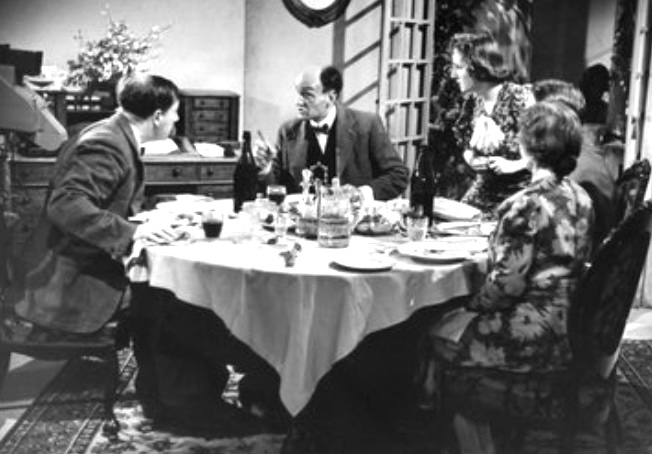OTD in early British television: 6 August 1938

John Wyver writes: The evening of the next day was to be devoted to the Russian ballet, and so the week’s headline drama was played on Saturday 6 August 1938, rather than the traditional Sabbath. The play was J.B. Priestley’s comedy-drama from 1933, Laburnum Grove. Michael Barry adapted and produced, with a fine cast that included Maurice Denham, Rosemary Lomax, Kitty de Legh, Charles Victor and Susan Richards.
‘E.H.R.’ for the Observer noted that the play had previously been given on radio, and that this production
showed how much more enjoyable is a play when it can be seen as well as heard.
The production, along with another of John Drinkwater‘s Bird in Hand, also prompted a bravura column for The Listener from Grace Wyndham Goldie:
What is wrong with the television programmes? There seems to be an impression that something is wrong with them. One newspaper says that a dose of northern strength would do them no harm. Another remarks that television sets do not sell as freely as they might, partly at least, because of the uneven quality of television entertainment.
A lady told me the other day that she had seen television once and did not wish to see any more. Only last night a distinguished gentleman announced in my hearing that ‘it is ridiculous to expect television to be popular when its programmes are so poor’.
Now most of all this is nonsense, and some of it is mischievously baseless and uninformed. l found out by pertinacious questioning that the lady had seen no television for a year and that the distinguished gentleman, who ought to have known better, had never seen any at all. And as a devoted and assiduous viewer I am prepared to maintain that the level of the programmes is, on the whole, very high.
But I do think that at the bottom of all the nonsense there is a grain of truth. There are, I believe, certain programmes and policies which are mistaken – in the present state of television very seriously mistaken – and the sooner they are remedied the better.
One is the practice of filling an entire programme with a single realistic stage play. This was done last week with Laburnum Grove and again with Bird in Hand. Each of these plays was given twice. This means that out of the total thirteen weekly hours of television no less than four were taken up with old popular successes of the stage; plays which have had long runs in London and which have been done all over the country by touring companies and repertory theatres.
They were written for the stage. They are bound to be less effective in television. My own view is that every programme should be varied. Since television hours are so short J maintain that short plays are better than long ones. l would have no play televised which has only one stage setting.
I believe that we want in television changes of scene and a flowing story – the novel form, the cinema form, the broadcasting form, but not the stage form. Why not try adapting novels and stories instead of using so many stage plays? And if this means too much work why not use some of the adaptations which have been made for [radio] broadcasting?
[OTD post no. 232; part of a long-running series leading up to the publication on 8 January 2026 of my book Magic Rays of Light: The Early Years of Television in Britain, which can now be pre-ordered from Bloomsbury here.]
Leave a Reply